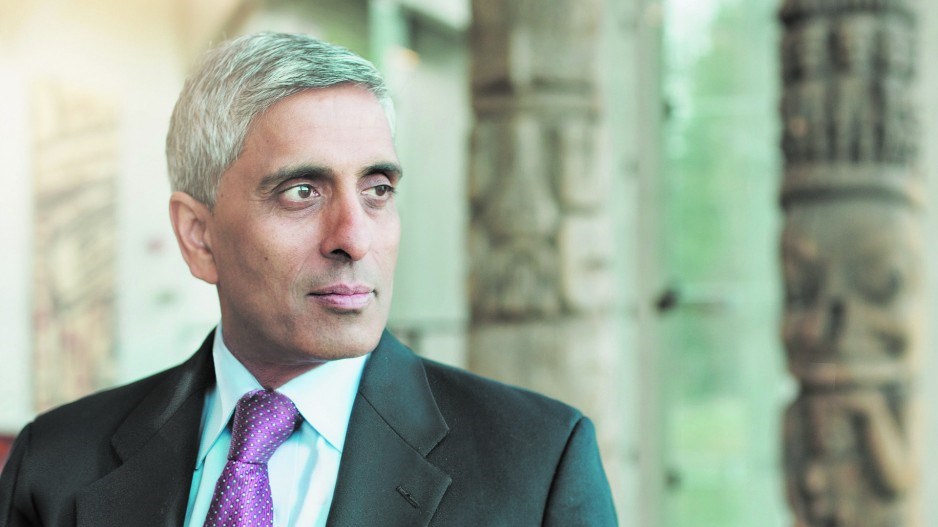Far from being ivory towers divorced from the real world, universities today are job generators that can stimulate local economies and attract businesses to a city.
But they need to continue to evolve to meet the demands of students and employers.
That was the argument made by Arvind Gupta, the new president of the University of British Columbia (UBC), to a Vancouver Board of Trade audience October 1.
Gupta has been on the job for seven months; he was previously CEO of Mitacs, a national non-profit research organization with ties to universities across Canada, including UBC.
Gupta called UBC a “heavyweight” when it comes to research funding, academic research output and employment outcomes for students.
“Within five years, 96% of UBC alumni are working in high-skill jobs,” Gupta said.
Nevertheless, the university needs to continue to improve, he said, outlining several areas he will focus on during his tenure: building strategic partnerships, improving community access to the university, increasing the employability of students and supporting innovation both internally and in the wider community.
Partnering with Vancouver’s business community will be important because the university plans to expand internships and research placements, increase student exposure and training with industry advisers and development into curriculum.
Gupta followed outgoing UBC president Stephen Toope’s lead in pushing for a subway line from Commercial Drive to the university’s Point Grey campus. The rapid transit connection not only would benefit the university, argued Gupta, but could also spur business to relocate to Vancouver.
Recent announcements by Sony (NYSE:SNE)and Microsoft (Nasdaq:MSFT) that they would be expanding their offices in B.C. are examples of the kind of “knowledge-based” businesses that are increasingly attracted to Vancouver, Gupta said.
“How many Microsofts and Sonys might locate along this line, if we can move brainpower effectively and efficiently?” he said.
“We must not let the Broadway corridor become an unfortunate footnote in the history of transportation planning; I want it to be the reason that the most innovative industries in the world move to our city.”
While Gupta comes from a math and sciences background, he emphasized his support of arts and humanities and said employers will be looking for people who understand “the human condition.”
“The students we have in the arts today are very technologically sophisticated,” he said.
“When we think about the future economy, I don’t think it’s an economy that’s going to continuously be built on rapid transformations in technologies.”
He believes universities should embrace the trend toward free online courses, saying it’s the right thing to do as workers increasingly need to become “lifelong learners.”
“Our main goal has to be to maximize outcomes for our students and not worry about the business model. I think if you do the right thing at all times, the business model has a way of sorting itself out.”
@jenstden




